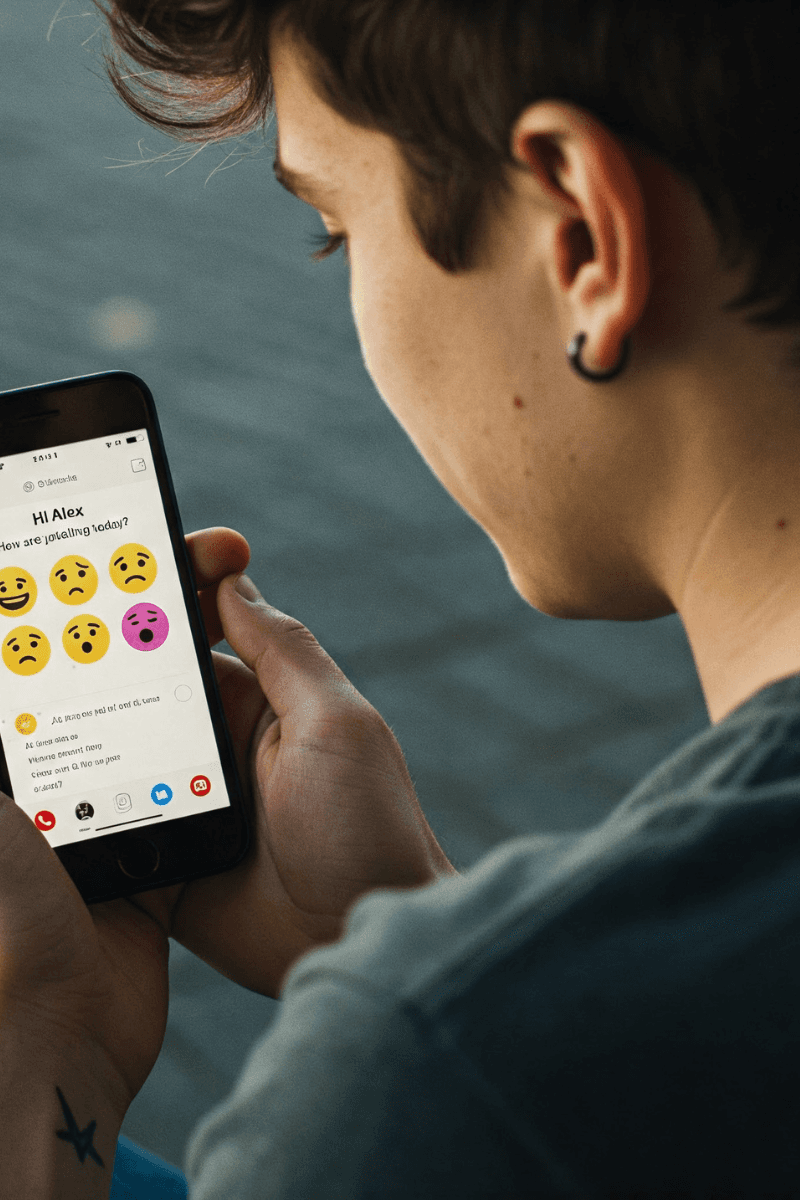From Tracking to Anticipation: Advancements in Mental Health Technology
Apr 11, 2025

In the last few years, we have seen a big shift in the implementation of technology within mental and physical health care. What was once a field focused on simple tracking and retrospective analysis is now moving to one of anticipatory care. New digital tools are emerging, such as mobile journaling apps, that seem to be able to analyze certain patterns over time, and then predict emotional low points or spikes across a range of emotional states. Of course, this shift is not merely about sophisticated algorithms; it can actually empower individuals to better understand and manage their well-being. These tools can offer actionable insights that improve well being and equip users with strategies for emotional self-management that reduce risks of psychological and physiological health issues before they spiral out of control.
In line with Hippocrates' belief that prevention is better than cure, this technological focus could perhaps prevent psychological or physical burnout, or at least reduce its impact on health. By offering a snapshot of one's overall health over a certain time interval, these apps can highlight patterns often very difficult to perceive. Sometimes humans can become blind to their own unhealthy habits and also to the pressures of certain situations as a result of suppressed emotions or self-preservation instincts. In this context, technology can almost act like an impartial observer, providing help at times when it is most needed.
Of course, life can still be a wildly unpredictable phenomenon, and many challenges really cannot be foreseen. But for all those variables that follow a pattern or have causes, using technology to one's advantage can provide meaningful assistance.
From Tracking to Anticipation
The earliest mental health apps were largely based on mood tracking, providing ways that users could log their feelings and observe their emotional trends over time. While still useful, the advances being made in the field of artificial intelligence seem to be taking these platforms significantly deeper. Today, modern applications can analyze journal entries for common emotional triggers, enabling the development of actionable plans and coping strategies. For example, applications that monitor users' speech tone can detect the changes in mood or the fluctuations of stress in the users' tone, which can be then used to provide some type of tailored-made support. With all of the recent advancements, people may now reflect not only on their emotions but also actively maintain their mental health, by preparing for emotional difficulties before they arise.
How AI Can Promote Personalized Care
AI-driven journaling apps, in a sense, are changing the very idea of a digital journal. They are able to deliver real-time feedback by analyzing data and predicting emotional swings. By using insights from the user's journaling habits, these tools can recommend various interventions, from relaxation exercises to reminders for self-care practices. Also, the introduction of customized notifications can ensure that the users are prompted to adopt good habits, and in this way, the emotional self-care regime could become an integral part of their daily life. This personalized approach may as well reinforce emotional regulation and encourage ongoing engagement with one's inner cosmos, allowing a chance to proactively address potential challenges.
Now, imagine receiving a notification alerting you to an elevated risk of certain irregularities in your emotional state based on your journaling notes from the past week. Such a notification might suggest avoiding emotionally burdensome situations or physically demanding tasks. While it is true that many individuals may not have the privilege to follow such suggestions due to financial or social constraints, there are still opportunities to fine-tune routines in ways that respect individual circumstances. By adjusting schedules and incorporating strategies that promote psychological, physical, or nutritional health, individuals can take meaningful steps toward building resilience, even amidst the challenges they may currently face.
Empowering Caregivers
The benefits of these apps could find practical applications to caregivers as well, who often face the demanding task of monitoring the emotional and physical well-being of their loved ones. Mobile journaling apps can serve as an early warning system, alerting caregivers and alleviating some of their emotional burdens by suggesting specific actions to take for their own good. The role of a caregiver is often sacred, and those who have shouldered this responsibility, understand how crucial it is to maintain a basic level of stability—both mentally and physically—to continue providing support without becoming overwhelmed. By combining journaling with physiological biomarkers, the caregivers themselves can gain a comprehensive understanding of their inner and outer worlds, aspects that are often easy to overlook or suppress. Ultimately, this approach could foster a healthier dynamic within the caregiver-recipient relationship.
Enriching Therapy
These tools could also serve to enhance the therapeutic experience for those already in treatment. In documenting emotional trends and cognitive impairments-such as lapses in attention or difficulties in processing-journaling applications offer insights that can further the therapeutic experience. Psychologists, neuropsychologists, and other clinicians have the ability to take these data-driven reflections and individualize care, promote meaningful dialogues, and advance the development and refinement of intervention strategies in a manner based on real-time data.
In conclusion, journaling has traditionally served as a means of introspection and relaxation, allowing individuals to express their emotions in writing and revisit them later. This meditative process has proven to have numerous positive effects on mental health. In this new era, particularly when combined with physiological insights, mobile journaling apps can offer significant benefits. These tools not only deepen our understanding of emotional trends but also serve a very important purpose in prevention. By mapping triggers and trends over time, they can let users predict emotional decline or stressors before escalation and, therefore, encourage proactive self-regulation.